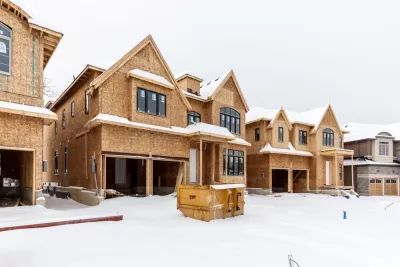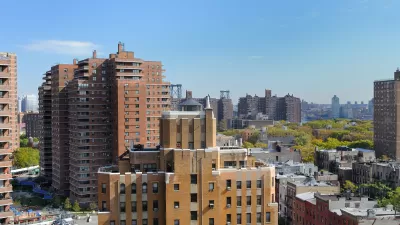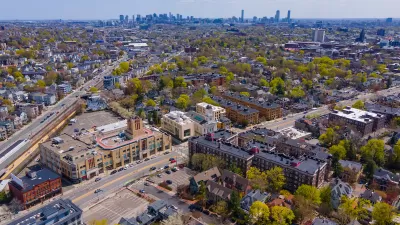The long-term effects of the Great Recession were timed very poorly for millions of Millennials aging into homebuying years. The pandemic and the traditional zoning preferences of communities aren't doing first-time homebuyers any favors.

Citing May 2021 research by Freddie Mac that estimated the nationwide housing shortage to total 3.8 million units, a recent article by Chris Arnold for NPR digs into the United States' historic housing shortage and identifies roots that stretch back to the Great Recession and mortgage crisis of 2008.
"It was the worst housing market crash since the Great Depression. Many homebuilders went out of business," writes Arnold of the fallout from the Great Recession. "A few years later, as Americans started buying more homes again, building stayed below normal. And that slump in building continued for more than a decade."
The building slump originating in the Great Recession is presently exacerbated by delayed and expensive building materials, according to the article. Add to all of those factors the poor timing of the arrival of the largest generation ever to the homebuying market, and the result is the current housing market, complete with record price increases and historic lack of inventory.
The homebuilding industry is scrambling to keep up, but challenges remain, according to the article. Among the current challenges working against the industry's ability to build the supply to catch up to demand, according to sources quoted in the article, are a lack of skilled labor and a lack of capacity for townhomes and other entry level homes in local zoning codes.
FULL STORY: There's never been such a severe shortage of homes in the U.S. Here's why

Maui's Vacation Rental Debate Turns Ugly
Verbal attacks, misinformation campaigns and fistfights plague a high-stakes debate to convert thousands of vacation rentals into long-term housing.

Planetizen Federal Action Tracker
A weekly monitor of how Trump’s orders and actions are impacting planners and planning in America.

San Francisco Suspends Traffic Calming Amidst Record Deaths
Citing “a challenging fiscal landscape,” the city will cease the program on the heels of 42 traffic deaths, including 24 pedestrians.

Defunct Pittsburgh Power Plant to Become Residential Tower
A decommissioned steam heat plant will be redeveloped into almost 100 affordable housing units.

Trump Prompts Restructuring of Transportation Research Board in “Unprecedented Overreach”
The TRB has eliminated more than half of its committees including those focused on climate, equity, and cities.

Amtrak Rolls Out New Orleans to Alabama “Mardi Gras” Train
The new service will operate morning and evening departures between Mobile and New Orleans.
Urban Design for Planners 1: Software Tools
This six-course series explores essential urban design concepts using open source software and equips planners with the tools they need to participate fully in the urban design process.
Planning for Universal Design
Learn the tools for implementing Universal Design in planning regulations.
Heyer Gruel & Associates PA
JM Goldson LLC
Custer County Colorado
City of Camden Redevelopment Agency
City of Astoria
Transportation Research & Education Center (TREC) at Portland State University
Jefferson Parish Government
Camden Redevelopment Agency
City of Claremont





























